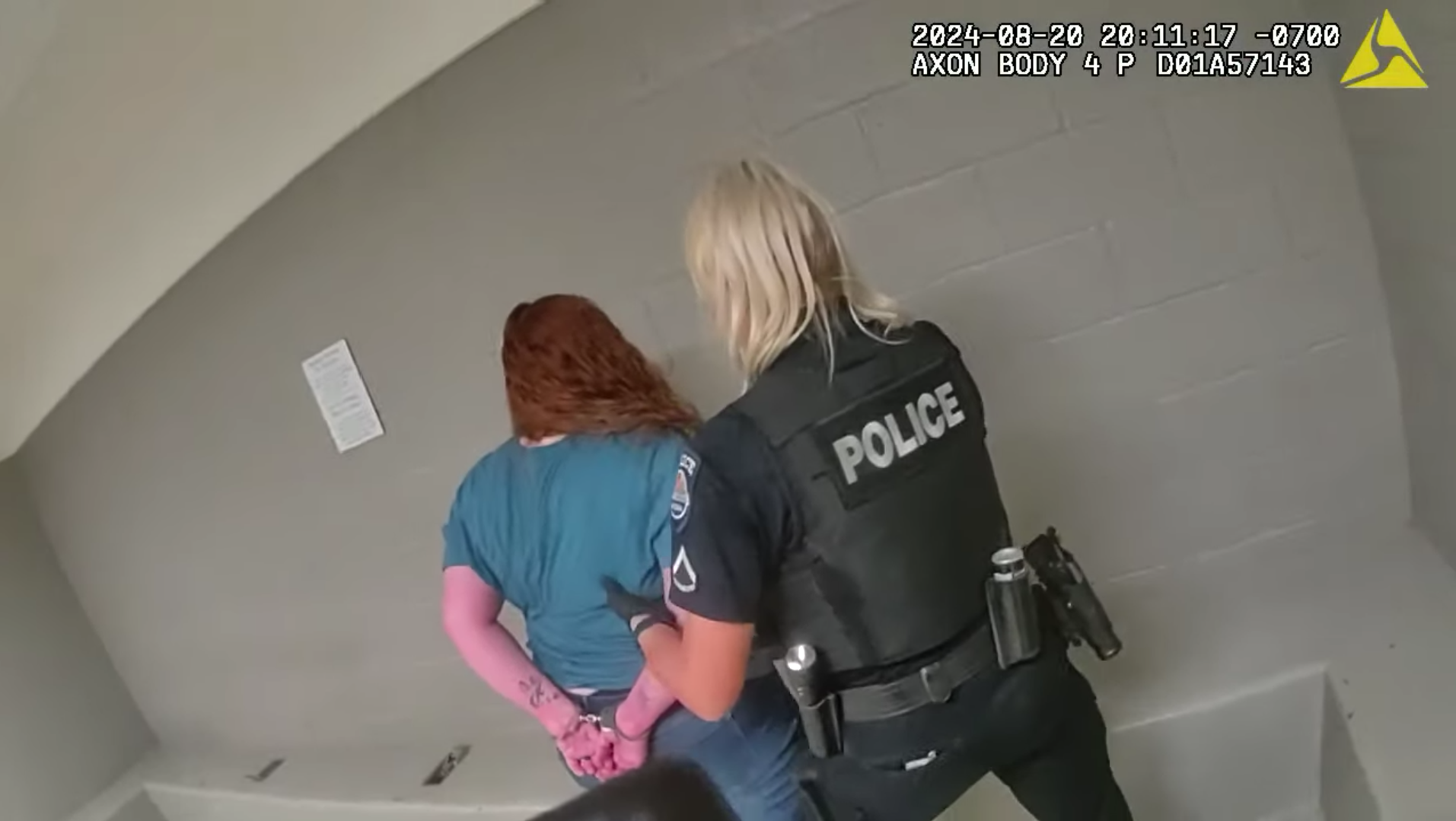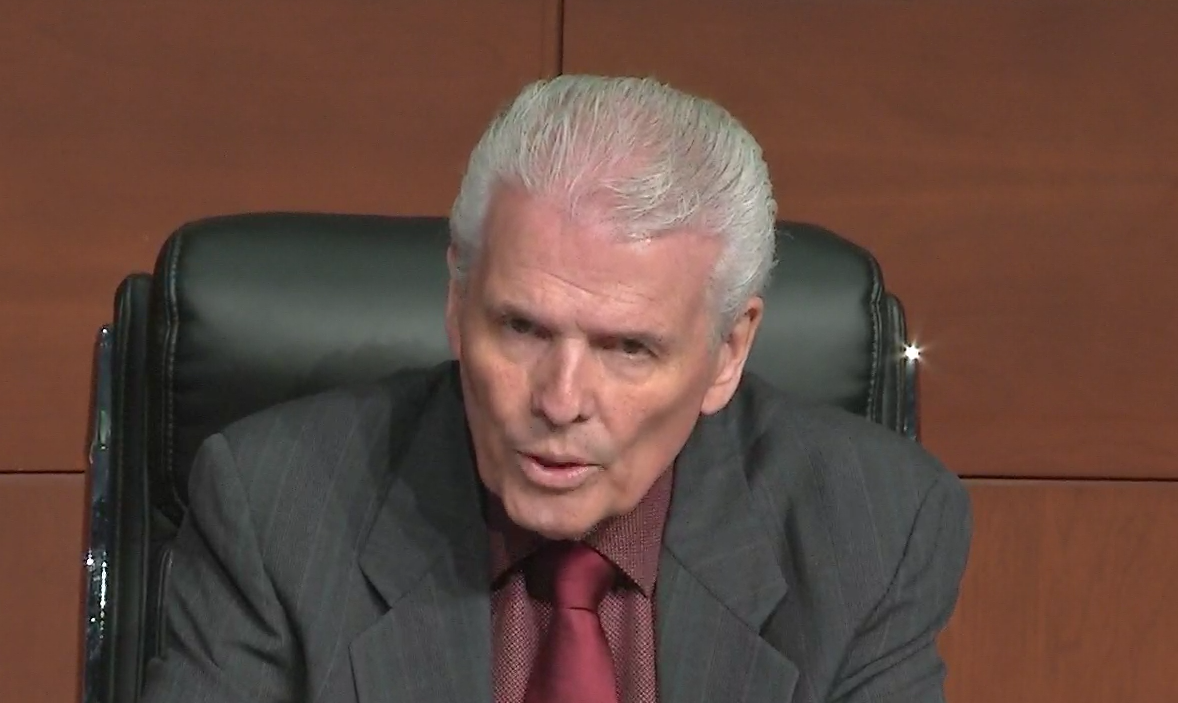
City of Surprise

Audio By Carbonatix
Two months ago, Rebekah Massie was arrested and charged with trespassing after criticizing a city official during the public comment portion of a Surprise City Council meeting. The incident, which many viewed as a blatant violation of the First Amendment, stirred immediate outrage in Arizona and nationally.
Now, more than two months later, Massie’s criminal case finally has ended. On Wednesday, a judge dismissed the charge against her with prejudice, meaning it cannot be refiled by prosecutors at a later date.
“The Defendant should not have faced criminal prosecution once for expressing her political views,” wrote North Valley Justice of the Peace Gerald A. Williams. “The Court agrees that she should never face criminal prosecution, for expressing her political views on that date at that time, again.”
In statements provided to Phoenix New Times, Massie and her criminal defense attorney, Bret Royle, celebrated the win as a victory for free speech rights.
“For more than two months, I’ve been living with the threat of punishment and jail time – being taken away from my kids, even – for doing nothing more than criticizing the government,” Massie’s statement read. “Free speech still matters in America, and I can’t tell you what a relief it is to have people on my side standing up for our rights with me.”
Royle added, “Rebekah should never have been detained, let alone criminally charged, for speaking her mind. That’s the kind of thing that happens in tyrannical countries but should never happen here.”

North Valley Justice of the Peace Gerald A. Williams wrote that Massie “should not have faced criminal prosecution” for criticizing a public official at a Surprise City Council meeting.
Surprise Police Department
With or without prejudice?
Massie’s dismissal didn’t come without a fight.
That her case should be dismissed wasn’t a source of disagreement between Royle and prosecutors, but how it should be dismissed was the subject of dueling motions before the court.
The Phoenix City Prosecutor’s Office, which was handling the case because the Surprise City Attorney’s Office had a conflict of interest, requested the charge against Massie be dismissed without prejudice on Sept. 30. Though perhaps unlikely in Massie’s case, that designation would allow prosecutors to refile the charge down the road.
In her motion, Assistant City Prosecutor Kerry Ann Rait argued that dismissing the case with prejudice, which would end the case for good, would be inappropriate because dismissing the case without prejudice would not cause Massie “some articulable harm.” On Oct. 10, Royle rebutted that argument in his own motion.
Royle wrote that dismissing without prejudice would prevent Massie from sealing her record until the statute of limitations expired. Before then, the arrest and charge would remain visible, without the accompanying context of their arguably unconstitutional underpinnings.
In his ruling on Wednesday, Williams found Royle’s position “persuasive” and dismissed the charge with prejudice. He added that he will entertain a motion to reconsider if the city attorney’s office wants to file one, though it’s unclear if Rait will. Phoenix Law Department spokesperson Dan Wilson said in an email to New Times that prosecutors “do not comment on prosecutorial deliberations.”

Surprise and Mayor Skip Hall are still facing a First Amendment lawsuit brought by Massie over her arrest.
City of Surprise
Not over yet
The criminal case may be over, but Massie’s battle with Surprise is not.
Her arrest generated headlines across the country, sparking Republican state Sen. John Kavanagh to ask the Arizona Attorney General’s Office to investigate the city. Coverage was so widespread that it actually delayed Massie’s criminal case. After the Surprise Municipal Court sent the case to the Hassayampa Justice Court due to a conflict of interest, Hassayampa Justice of the Peace Chris Mueller then kicked the case to the North Valley Justice Court because he had “heard extensive news reports” of Massie’s arrest “and cannot be objective.”
On. Sept 17, after the Surprise City Council quietly and unanimously repealed the public comment rule it accused Massie of violating, Kavanagh dropped his request that Surprise be investigated. But a First Amendment lawsuit filed by Massie against the city and Mayor Skip Hall is ongoing.
The city may have wised up and changed its public comment policies, but that doesn’t erase Massie’s arrest or the two months she spent facing a criminal charge as a result. According to attorney Conor Fitzpatrick of the Foundation for Individual Rights and Expression, which is representing Massie in the civil suit, “the fight goes on.”
In a statement, Fitzpatrick said, “We want to make it crystal clear to governments across the United States that brazenly censoring people and betraying the First Amendment comes with a cost.”